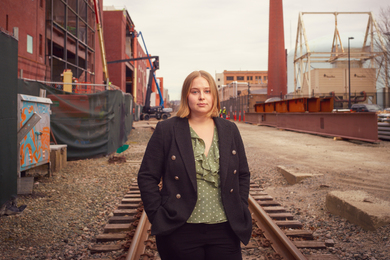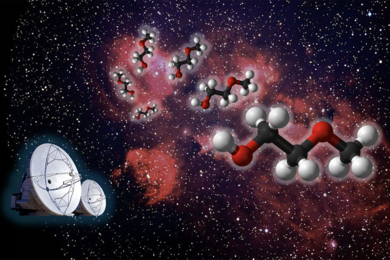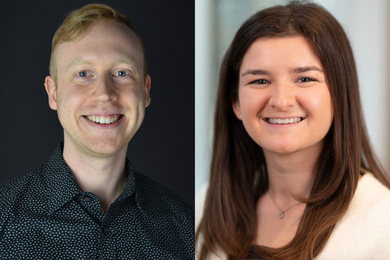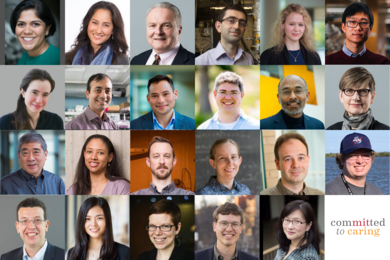Undergraduate and graduate students who work in developing regions outside the United States over Independent Activities Period or over the summer are eligible to receive grants for up to $1,000 from the Public Service Center (PSC). Below is a brief summary of grant-winning projects students worked on during IAP 2007.
Argentina: HIV and sex education counseling in Buenos Aires
Sophia Kamran, a junior in biological engineering, and Keron Lezama, a junior in chemical engineering, traveled to Hospital Rivadavia in Buenos Aires to help the medical workers develop their HIV and sex education counseling services. While they assisted in improving information access for patients, they also improved their own understanding of public health issues in developing countries, learned about cultural issues related to sensitive subjects and gained Spanish fluency.
Brazil: Improving living standards in Rio de Janeiro and Tocantins
Aimee Beasley, a junior in civil and environmental engineering, traveled with D-Lab students and two team leaders to Brazil. She worked with the Esçola do Canuanã, an agriculturally focused boarding school, and with local village members to design simple appropriate technological solutions to daily health, sanitation, electricity, water, communication and economical issues in the rural state of Tocantins. In Rio de Janeiro, in the neighborhoods of Rhocina, Manguiera de Botafogo and Bangu, Beasley worked on solar water disinfection systems for the urban and rural environments. She also helped to implement a tin can chimney designed by a high school student.
Ghana: High-tech education
Xin He, a sophomore in chemical engineering, worked on projects in the rural village of New Longoro, Ghana, with six other MIT students and a faculty member. They taught teachers how to use a laptop they donated and discussed other plans "to better prepare the rural West African students for today's high-tech world." He "returned to MIT very aware and appreciative of all the opportunities and resources available to me. I plan on making full use of everything here and hope to continue contributing to those in need," she said.
Kenya: Water-carrying donkeys empower Masai women
Zawadi Lemayian, a sophomore in management, traveled to Kenya to try to improve educational access for Masai girls, who typically are not allowed to go to school. Water access is a critical need in the area, so Lemayian used some of her grant funds to purchase donkeys for carrying water. By working with the chief and other leaders, Lemayian arranged for the women to control this resource, which resulted in both greater access to water and more respect for women. In addition, Lemayian worked with the chief to convince three families to send their daughters to school this year. Lemayian said, "You only appreciate what you have when you realize how much harder other people's lives are."
Mauritius: Environmental education at the Hindu Girls School
Christopher Cleaver, a junior in aeronautics and astronautics, worked in Mauritius, a small island and a developing state in the Indian Ocean, off the east coast of Madagascar. His project was the School Footprinting Initiative, a three-year environmental education project that challenges students to measure and reduce the environmental impact of their school. Cleaver founded the project, obtained approval from the government of Mauritius, and secured a promise of funding from Shell Mauritius. In addition, he conducted a two-week pilot project with a ninth grade class in the Hindu Girls School, discussing ecological footprinting, data collection and reporting. The project is being launched in eight schools in 2007, with an expansion to 16 and 32 schools planned in 2008 and 2009 respectively.
Southern Africa: Bringing solar energy to Lesotho
Alex Hornstein, a senior in electrical engineering and computer science, traveled to Lesotho to work on a solar energy project at the Bethel Business Community and Development Center with MIT students, alumni and local people. The experience affirmed that it is possible, but -difficult, to build a sophisticated device in an isolated rural area, and that creativity and teamwork are essential for success.
Tanzania: Prospecting for future D-Lab projects
Ammar Jiwaji, a sophomore in management, spent his IAP in Arusha, Tanzania, and surrounding villages to investigate prospects for future D-Lab projects for other MIT students. He found interesting project possibilities related to wheelchairs, improved cooking charcoal, health education and agricultural development, he said.
Tanzania: Replacing stolen computers and computer education
Philip Laker-Ojok, a sophomore in chemical engineering, worked with Folkers Rojas, a junior in nuclear science and engineering, to gather computer equipment to donate to the Loreto School in Mwanza, Tanzania, replacing computers that had been stolen.
A version of this article appeared in MIT Tech Talk on March 7, 2007 (download PDF).






